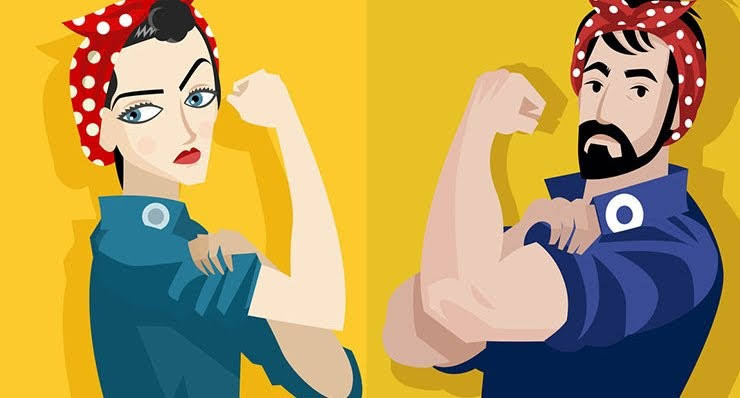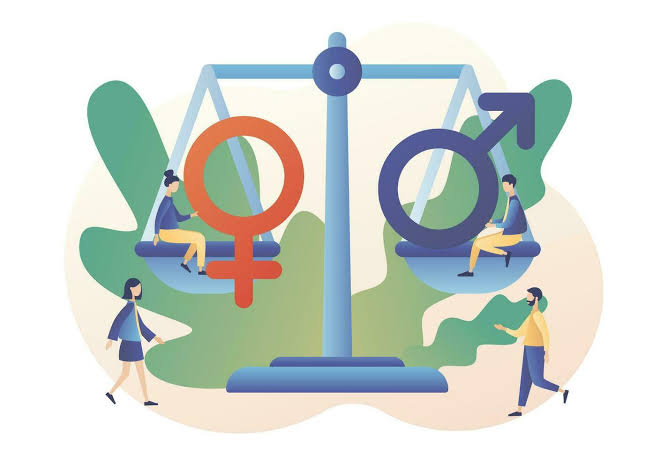In today’s rapidly changing society, we frequently wonder: Does feminism harm masculinity? These two views may appear to be diametrically opposed, but there is more to it than meets the eye.
In this article, we’ll look at how feminism and masculinity interact and how they challenge conventional wisdom. We’ll look at how feminism affects all aspects of male identity, from changing destructive behaviors to fostering healthier ways of being.
Our goal is to fully understand this complex relationship and clarify any misconceptions so that we can build a more equal and inclusive world for everyone.
Difference between Feminism and Masculinity
Feminism is a social and political movement that seeks gender equality, with a primary emphasis on empowering women and overcoming past gender imbalances.

Masculinity, on the other hand, refers to the cultural and sociological aspects of being a man. While conventional masculinity is frequently associated with attributes such as strength and emotional stoicism, contemporary debates seek to widen this concept to include emotional intelligence, empathy, and respect, ultimately changing what it means to be a man in the twenty-first century.
The dynamic interplay of feminism and masculinity entails breaking down stereotypes, developing healthier forms of manhood, and fostering a more inclusive and equal environment for all genders.
You may Also Like: Gender Inequality in Indian Culture
Is feminism toxic to masculinity?
In our rapidly changing world, conversations around gender, identity, and equality have never been more relevant. A topic that often stirs debate is whether feminism is detrimental to masculinity.
These two concepts may conflict, but a closer examination reveals a more intricate relationship. This article will explore the dynamics between feminism and masculinity, shedding light on how they intersect and challenge conventional notions.
We will address the impact of feminism on various facets of masculinity, including its role in confronting toxic behaviors while fostering healthier expressions of manhood. As we navigate this discourse, let’s strive for a nuanced understanding, dismantling myths and fostering a more inclusive and equitable future for all.
What is the relationship between masculinity and femininity?
To understand the connection between feminism and masculinity, it’s essential to consider their historical context. For centuries, societies worldwide adhered to rigid gender roles, prescribing specific behaviors, functions, and expectations based on an individual’s sex.

Men were expected to embody strength, stoicism, and dominance, while women were confined to nurturing and subservient roles.
The feminist movement, which gained momentum in the late 19th and early 20th centuries, set out to challenge and deconstruct these traditional gender norms. Feminism advocates for gender equality and acknowledging women’s rights and opportunities.
However, some perceive this movement as a threat to conventional masculinity, as it challenges the power dynamics and privileges historically enjoyed by men.
What is toxic masculinity?
One aspect of masculinity that feminism seeks to address is toxic masculinity—an array of harmful behaviors and attitudes that align with traditional male stereotypes.
These behaviors often encompass aggression, emotional suppression, and a sense of entitlement. It’s crucial to clarify that not all facets of masculinity fall within toxicity. Still, these negative behaviors can have adverse consequences for both men and society.
Feminism’s mission is not to undermine masculinity but to encourage men to transcend these harmful behaviors and expectations.
It promotes emotional expression, empathy, and the cultivation of healthier relationships, offering an alternative model of masculinity that is more inclusive and respectful.
How does feminism support men?
Feminism empowers males by questioning gender stereotypes and pushing for a more inclusive and equal society. It acknowledges the negative impacts of toxic masculinity, encourages men to express themselves in ways that challenge traditional stereotypes, and advocates for legislation and programs that enhance men’s well-being and parental rights.
Contrary to the idea that feminism erodes masculinity, many men discover empowerment and personal growth by engaging with feminist principles. Feminism advocates for equal opportunities and rights for all genders, including recognizing and addressing the challenges men face.
Feminism and male empowerment examples
For example, the feminist movement has called for changes in family laws, challenging biases that assume women are always the primary caregivers in divorce and custody disputes. This shift acknowledges that men can be nurturing parents and deserve equal consideration.
Additionally, feminism encourages men to break free from rigid gender roles, allowing them to pursue careers and interests traditionally associated with women without fear of judgment. This newfound freedom can lead to personal fulfillment and a more profound sense of authenticity.
Gender Equality vs. Masculinity
The idea that feminism threatens masculinity often arises from a misunderstanding of the goals of gender equality. Feminism does not seek to diminish or emasculate men; it aims to create a level playing field where individuals of all genders can thrive without societal constraints.
Gender equality benefits everyone. It means that men are not confined to predefined roles any more than women are. Men can be nurturing, compassionate, and emotionally expressive without fearing that these traits undermine their masculinity.
Challenging Traditional Masculinity
One of the most significant impacts of feminism on masculinity is its ability to challenge traditional norms. It encourages men to question why certain behaviours or attitudes are associated with being a man and rejecting those that are harmful or limiting.
As men engage with feminist ideals, they often find a renewed sense of purpose and authenticity. They can prioritize meaningful connections and personal growth over conforming to rigid stereotypes. This shift is not about becoming less masculine but a better, more genuine version of oneself.
What is Healthy Masculinity?
Feminism promotes healthy masculinity—an expression of manhood that embodies emotional intelligence, empathy, and respectful behaviour. Men who embrace healthy masculinity are not threatened by feminism; they become allies in the fight for gender equality.
Healthy masculinity recognizes that men, like women, can be vulnerable, seek help when needed, and reject the toxic behaviours that have long plagued traditional notions of manhood. This shift benefits men individually and contributes to building healthier relationships and communities.
Gender Discourse and Collaboration
Feminism has created a space for constructive dialogue and collaboration among individuals of all genders. It encourages men to listen to women’s experiences and challenges, fostering greater empathy and understanding.
By engaging with feminism, men can become allies in pursuing gender equality. They can actively support women’s rights, challenge discrimination, and advocate for changes in policies and practices that perpetuate gender disparities.
Redefining Masculinity
Rather than viewing feminism as a threat to masculinity, it can be seen as an opportunity to redefine what it means to be a man in the 21st century. Men can embrace a more inclusive, compassionate, and authentic version of masculinity that aligns with feminist principles.
This redefinition allows men to enjoy more fulfilling relationships with themselves and others. It contributes to a society where all individuals, regardless of their gender, can live free from the constraints of harmful stereotypes.
Conclusion
In conclusion, the notion that feminism is toxic to masculinity is a misconception rooted in a limited understanding of both concepts.
Feminism is not an attack on men or traditional masculinity; it is a movement that seeks to challenge harmful gender norms and promote equality. It encourages men to reject toxic behaviours and embrace healthier expressions of masculinity.
Through feminism, men can find empowerment, personal growth, and the opportunity to build more authentic and meaningful lives. Rather than being in conflict, feminism and masculinity can coexist and thrive in a world that values equality and individuality.
The path forward is one of collaboration, empathy, and mutual support as we work towards a more inclusive and equitable future for all genders.
FAQ’s
What is toxic masculinity, and how does feminism address it?
Toxic masculinity refers to harmful behaviors and attitudes associated with traditional male stereotypes. Feminism addresses it by promoting healthier expressions of masculinity, such .oxic as emotional intelligence and empathy, and challenging behaviors like aggression and emotional suppression
Does feminism aim to diminish or undermine masculinity?
No, feminism does not seek to undermine masculisusuppressionit encourages men to transcend harmful behaviors and ex pectations while promoting gender equality and recognizing the challenges men face.
How can men benefit from embracing feminist principles?
Embracing feminist principles can empower men by promoting personal growth, emotional expression, and authentic relationships. It also allows men to challenge rigid gender roles and pursue interests without fear of judgment.
Does feminism mean that traditional masculinity is inherently harmful?
Feminism does not label all aspects of traditional masculinity as harmful. It identifies and challenges toxic behaviors while recognizing that not all expressions of masculinity are detrimental.
How can men be allies in the feminist movement without feeling like their masculinity is threatened?
Men can be allies by actively supporting gender equality, challenging discrimination, and engaging in constructive dialogue. Being an ally does not threaten masculinity but contributes to a more inclusive and equitable society.
Read More:
Why do twin flames incarnate?: Everything You Need to Know
Love’s Unexplored Path: A Journey of Fear and Courage
The Mirror’s Master: Unmasking the Narcissist Husband

Vidushi Gupta is a certified spiritual coach, energy healer, and emotional wellness counselor with over 10 years of experience guiding people through spiritual signs, emotional healing, and inner transformation. Her approach is grounded, fear-free, and focused on helping readers understand spiritual experiences with clarity and emotional balance.
With a background as a digital content strategist and published author of nearly ten novels, Vidushi has reached over 20 million readers worldwide through her writing. She is known for explaining complex spiritual ideas in simple, relatable language, making topics like repeating signs, intuitive shifts, and spiritual awakenings easier to understand and trust.
Through her work, she helps people connect everyday life experiences to deeper inner growth—gently, honestly, and without superstition.
Accuracy, Fact-Checking & Expert Oversight: Vidushi Gupta.
